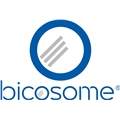- Inici
- Centre
- Instituts
- Biblioteca
- Projectes
- Igualtat
- Comissió d'Igualtat
- Sala d'alletament
- Lavabos sostenibles per a un ús menstrual
- III Pla d'Igualtat entre Dones i Homes al Consell Superior d'Investigacions Científiques
- Protocol de prevenció i intervenció davant l'assetjament sexual i l'assetjament per raó de sexe al CSIC
- Documentació bones pràctiques
- Exposicions
- Intranet CID
- Contacte
Centre d'Investigació i Desenvolupament
IQAC Seminar - Prof. Andrew Kirk Department of Electrical and Computer Engineering and McGill Institute for Advanced Materials McGill University

Next Wednesday 8th May will take place at 10:30 am in the Sala d'Actes room - CID the IQAC Seminar by Prof. Andrew Kirk, from the McGill University.
Speaker: Prof. Andrew Kirk (Department of Electrical and Computer Engineering and McGill Institute for Advanced Materials - McGill University)
Title: Photonic biosensing: opportunities and challenges
Time: 10:30 am
Date: May 8th 2019
Location:
“Sala de Actos” room
Institute of Advanced Chemistry of Catalonia (IQAC-CSIC)
C. Jordi Girona 18-26, 08034 Barcelona
Abstract:
Biomolecular sensors are widely used across a variety of biomedical applications including medical diagnostics, drug screening, environmental monitoring (for example water and food quality testing), and research. Biological function of an affinity sensor requires surface chemistries that support specific capture of the target molecule to be detected. The sensing task then becomes one of measuring the change in surface properties due to molecular interactions; for instance, optical biosensors measure changes in optical properties at the device interface and can be highly sensitive to molecular binding. Whilst various optical sensing technologies have been demonstrated for sensing applications in the biomedical, environmental, and industrial sector, there remains a significant need for improved integration, packaging and signal processing techniques to realise the full potential of the technology. In this talk I will present some of the different approaches that we have taken to implement optical biosensors. The whispering gallery modes of optical microtoroidal resonators have been of interest for biosensing for several years due to their high sensitivity to changes in the local optical environment. We have shown recently that by interrogating these sensors in the time-domain (rather than in the frequency-domain, which is what is more usually done) it is possible to simplify the measurement system while obtaining the same sensing information. Localized surface plasmon resonance (LSPR) in metallic nanoparticles represents another widely used approach to optical biosensing. These structures have the advantage that they can be precisely tailored and can be integrated into very small packages. However they typically have a somewhat broad resonance curve which results in lower sensitivity. I will describe the use of a novel signal processing technique which can significantly improve the limit of
detection and signal-to-noise ratio and the structures, and I will also show how data from multiple excitation modes can be optimally combined to yield the maximum information. Finally I will show how the optical absorption properties of gold nanoparticles can be used to achieve an ultrafast polymerase chain reaction (PCR) system.
Biography:
Andrew Kirk received the Ph.D. degree in Physics from King’s College (London) in 1992 and subsequently undertook postdoctoral research at the University of Tokyo and the Vrije Universiteit, Brussels, Belgium. He has been a member of the Department of Electrical and Computer Engineering at McGill since 1996 and is author of more than 200 journal articles and conference presentations and holds 4 patents. His research interests are focused on the integration of nanophotonic components for biosensing and telecommunications. He is also an engaged teacher, having twice been awarded the Principal’s Prize for Excellence in Teaching at McGill. He has served as Chair of the Department of Electrical and Computer Engineering and has previously served as Interim Dean of Engineering and Associate Dean for Research and Graduate Education. He is a former Chair of the IEEE Photonics Society Nanophotonics Technical Committee and in 2010 was appointed as a Distinguished Scholar for the Erasmus Mundus M.Sc. program in Photonics.
 IQAC Seminar Prof. Andrew Kirk 08/05/2019
IQAC Seminar Prof. Andrew Kirk 08/05/2019
Date:
dimecres, 24 abril 2019









